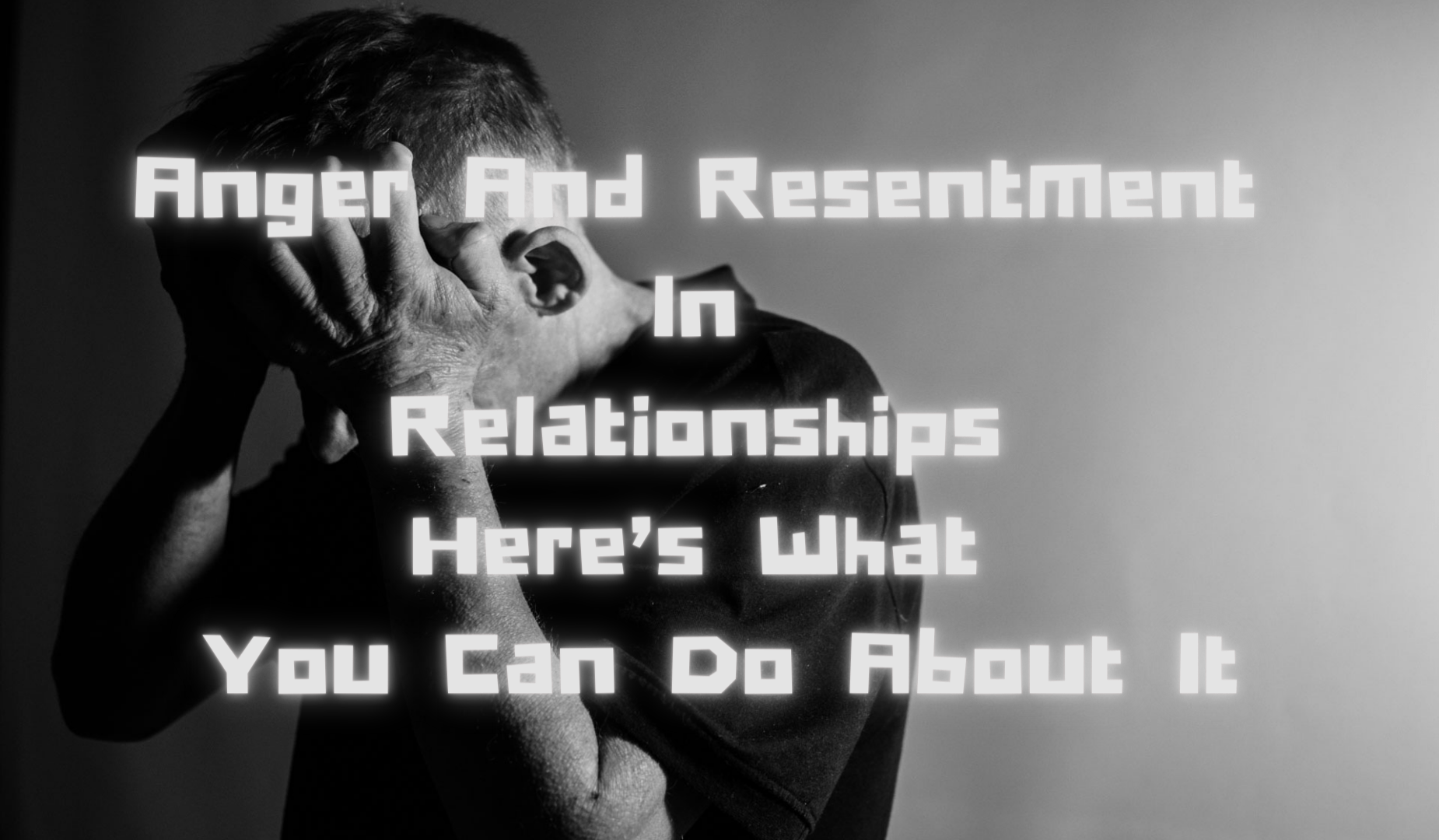Here’s What You Can Do About It
Anger and resentment can be detrimental to a relationship, but there are also healthy ways to express these types of strong emotions. Anger is often our way of reacting to a hurt ego or unfulfilled desire.
If this anger is not addressed and expressed, then it can fester and grow into rage that can lead to regrettable behaviors. Resentment can grow into anger and make us uneasy in a relationship, even if it is truly what we want or what is best for us at the time.
It is important to note that sometimes anger and resentment are signs of deeper problems in a relationship, and they may not always be solvable problems.
Still, it is good to know how to deal with your own angry emotions in a healthy way. First though, it helps to know the difference between anger and resentment and the things that characterize each one.
Anger and Resentment
Anger is a normal emotion that is important, and it can be a healthy reaction to certain situations. It is a response to something going differently than you had hoped for or an injustice that occurred.
It occurs in the present when things are currently not happening the way we wanted them to.
Healthy expression of anger can help us find acceptance for the way things are, but while we are still angry without addressing those feelings, the emotion can find a way to alter our words and actions.
This can cause problems in a relationship if not dealt with properly and expressed the way it should be.
Anger is usually a secondary emotion that occurs when we feel hurt or afraid or insecure. The inward feeling that these types of primary emotions provoke can be a catalyst for the outward expression of anger.
While anger can serve important purposes, sometimes our anger can get out of control.
Some people have trouble expressing their anger in a healthy way or feel angry too frequently. If this is the case, you may find resources at BetterHelp that offer useful information and advice.
They also have information that may help you identify an underlying cause for the anger or learn to redirect it into something positive.
Resentment is related to anger in a lot of ways. When we feel resentment, we feel negative feelings toward something in the past. Whereas anger is about current situations and events, resentment is about prior occurrences or injustices.
This can bring up older feelings of anger that you felt before and can fester underneath the surface and shape our feelings toward another person. Resentment can spring from real injustices, but in some cases, it is caused by a perceived or imaginary injustice as well.
Resentments can lead to persistent anger for weeks, months, or years and the original cause of the feelings may be long forgotten and insignificant for the current situation.
However, it can cause a lot of problems in a relationship because it smolders and grows and can contribute to a fallout or lasting anger issues within a certain connection with another person.

What Causes Anger and Resentment?
There are a lot of things that can contribute to or cause anger and resentment. While the specific cause may be drastically different form one relationship to another, there are some common problems that can lead to the cause.
First is the desire to always be right. Sometimes a relationship struggles to progress because one or both people in the relationship always want to be right.
This can come across as arrogance and make it hard for both people to feel valued. As one person feels unheard or undervalued, the resentment can turn into anger and rage.
Sometimes resentment is caused by one person taking advantage of the other. This can lead one person to have their needs met while the other person is not getting everything out of the relationship that they want.
It can also lead to decisions that both people do not agree upon and the path from their forward may be filled with resentment because things didn’t go as both members of the relationship wanted them to go.
Another cause of anger and resentment is simply feeling hurt or insulted. Even if something is said lightheartedly, sometimes the put-down can trigger a specific instance or emotion in the other person.
There could be some prior reason that certain insults or jokes cause more anger than others.
Finally, when one person takes the relationship more seriously than the other, then this can lead to resentment as well. The person who is putting in more effort or attention to the growth of the relationship may feel like the other person does not care.
So, what can you do about these bottled-up emotions before they wreck the relationship for good?
Addressing Anger and Resentment
The first thing that you can personally do to address the anger and resentment that you feel is to identify it.
Knowing that you feel those emotions and why you feel them is the first step to addressing them and expressing them in a healthy way. Then, try to accept those feelings.
Mindfulness meditation can help you do this by allowing you to see the associated thoughts and feeling without judgement. This can also help you move on from resentment and see the positive aspects of the situation.
You may also find that you have no reason to be resentful anymore by looking at the big picture or objectively seeing your misguided perspective.
It can also be good to see the ways that you contributed to the relationship issues. Most anger and resentment within a relationship has contributions from both people.
This can also allow you to apologize and move past the resentment for things that you did wrong. This may also make it more likely that the other person apologizes for the way they have wronged you.
Maybe the most important feature of a healthy relationship is communication. Talking about your thoughts and feelings can help you to move past it and see the problems together.
This can also help you compromise to move past it. If you do not feel like talking about the issues yet, then you can also try writing them down in a journal.
Some people like to write a gratitude journal comprising of all the things that they are grateful for, which can help you see the relationship from a positive perspective.
Finally, while you may still feel some residual anger and resentment, try not to take it out on the other person. Put in the effort to remain compassionate and empathetic. Realize that you cannot change the past, but that you can make the future better for yourself and others.
Conclusion
Anger and resentment can be a factor for the end of a relationship, but anger is also a natural emotion that doesn’t have to wreck a relationship. Knowing the causes of the resentment and anger and dealing with them in a healthy way can propel the relationship forward toward acceptance.
This technique can also help you individually in any future relationships and improve your well-being by providing you with a better perspective on your own emotions.
